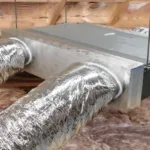Are you planning on cleaning up a large property, but the expenses add to the tension? Don’t worry! You can also complete this work without breaking the bank. Whether it is a forested land, an old building, or a disused item, you can clean it easily—that too within your budget.
Sometimes it seems that a big cleaning will require an expensive company, but in fact, with careful planning, it can also be done in a cheap and effective way. You can avoid contractors’ fees altogether, get help at a discount or at lower rates, and even save money by reusing some items.
In this article, we will tell you all the smart, low-cost ways that will make your property look fresh without spending much.
Why Should You Clean Your Property?
Think of dust, garbage and dirt everywhere in your house, how will you feel? A home isn’t just a place to live, it’s also a place of comfort. A clean home is not only good for your health, it’s also good for your environment.
If you cleanse yourself every day, you will be able to prevent diseases. Dust and dirt can give you allergies, coughs, and other problems. On top of that, a nice and clean home provides peace of mind.
So, when you clean your house, you will feel proud of yourself. Your home will always look fresh and beautiful, and if someone comes to your house, there will be no need to be ashamed!
8 Best Ways to Handle a Major Property Cleanup Without Breaking the Bank
Here are 8 best ways to handle a major property cleanup without hurting your pocket;
1. Start With a Plan
Jumping straight into a cleanup without a plan is like trying to build furniture without the instructions—it’s frustrating and wastes time. Start by assessing the scope of the work. What exactly needs clearing? Are you dealing with furniture, appliances, yard waste, or general junk? Write down what needs removing and sort it into categories. This will help you figure out what to prioritize and how to handle each type of waste.
Once you know what you’re up against, create a timeline. Giving yourself deadlines can keep you motivated and prevent the project from dragging on. It’s also smart to set a budget early on. Decide how much you’re willing to spend and stick to it. A little planning goes a long way in avoiding unnecessary costs.
2. Sort and Simplify
Before you start hauling things away, take some time to sort through everything. Not all of it will be junk—some items can be donated, sold, or recycled. Ask yourself:
- Can this be reused? Things like gently used furniture, kitchen items, and clothing can often find new homes.
- Is it recyclable? Cardboard, metal, electronics, and certain plastics shouldn’t go straight to the landfill.
- Does it have value? Consider selling higher-value items online or through a garage sale.
By separating items into “keep,” “donate,” “sell,” and “trash” piles, you can significantly reduce the amount of waste you’ll need to dispose of. Plus, donating or selling items can give your budget a little boost.
3. Consider Hiring a Dumpster
When it comes to removing large volumes of waste, renting a dumpster is often the most practical solutions for large-scale cleanups. It’s an upfront cost, but it can save you money compared to multiple trips to the landfill or hiring a cleanup crew. Dumpsters are particularly useful if you’re dealing with bulky items like furniture, construction debris, or yard waste.
Here’s a tip: don’t go for the biggest dumpster just because it seems easier. Assess the volume of your waste and choose a size that fits your needs. Many dumpster hire companies offer a range of options, so pick one that works for your budget. Make sure to ask about any additional fees, such as weight limits or overage charges, so you’re not caught off guard.
4. DIY Where You Can
If you’re on a tight budget, rolling up your sleeves and doing as much of the work yourself can save a significant amount of money. Recruit family or friends to help—it might even make the process more enjoyable. Set up a system to keep things efficient:
- Start with one area at a time. Focusing on a single room or section prevents overwhelm.
- Use proper tools and safety gear. Gloves, sturdy shoes, and dust masks can go a long way.
- Load heavy items first when filling your dumpster to maximize space.
While DIYing can take more time and effort, it’s one of the best ways to stay within budget.
5. Take Advantage of Free or Low-Cost Disposal Options
Before you haul everything to the dumpster, check out your local disposal resources. Many communities offer free or discounted services for certain types of waste. For example:
- E-Waste Recycling – Electronics like TVs, computers, and phones often have specific drop-off points for safe disposal.
- Bulk Waste Pickup – Some cities provide bulk item collection services at little or no cost.
- Hazardous Waste Days – Items like paint, chemicals, and batteries may qualify for free disposal on designated days.
Taking advantage of these programs can reduce the amount of waste you need to put in a paid dumpster, ultimately saving money.
6. Stay Organized
Staying organized throughout the cleanup process will save you from costly mistakes or wasted time. Label your piles clearly and keep track of what’s already been removed. If you’re using a dumpster, monitor how full it’s getting to avoid overloading it.
It’s also worth keeping receipts for any disposal fees or expenses. If the cleanup is related to a rental property or home sale, these costs might be tax-deductible.
7. Avoid Hidden Costs
One of the easiest ways to blow your budget is by overlooking hidden fees. When renting a dumpster, read the fine print to avoid surprises. Common fees to watch out for include:
- Overweight charges for exceeding the dumpster’s weight limit.
- Extended rental fees if you keep the dumpster longer than agreed.
- Disposal surcharges for prohibited items like tires or certain electronics.
By understanding the terms upfront, you can avoid unnecessary expenses and keep things affordable.
8. Keep the Momentum Going
Once the heavy lifting is done, don’t let clutter build up again. Establish systems to keep your property clean and organized moving forward. Regularly declutter, donate unused items, and recycle whenever possible. A little maintenance can prevent the need for another major cleanup down the line.
How Much Does it Cost to Cleanup a Property?
From the size of the property, the type of cleaning, and local labor rates to the frequency of cleaning, there are several factors affecting the cost of cleaning a property.
For example, the cost of cleaning a 2,000 square foot house can normally range from $110 to $320.
The cost depends on the size of the house and the depth of cleaning. If you want a deep cleaning, this cost can be higher, costing from $200 to $600.
If you are cleaning after a new construction, the cost may also vary. The cost of such cleaning can be $0.20 to $0.60 per square foot, which includes debris removal, dust cleaning, and cleaning surfaces.
So, while planning your home cleaning, keep all these factors in mind so that you can choose the services as per your budget.
Frequently Asked Questions
1. What is the Most Cost-Effective Way to Clean up a Large Property?
The most affordable approach includes renting a dumpster, selling or donating unwanted items, and handling as much of the labor yourself as possible.
2. Are There Any Free Options for Disposing of Unwanted Items?
Yes, many donation centers, recycling programs, and municipal waste collection services offer free disposal for certain items like furniture, electronics, and hazardous waste.
3. How can I Save Money on Hiring a Cleanup Crew?
Consider hiring local freelancers or day laborers instead of large cleanup companies. You can also organize a community cleanup with volunteers.
4. Is Renting a Dumpster Cheaper than Hiring a Junk Removal Service?
In most cases, yes. Dumpster rentals allow you to work at your own pace, whereas junk removal services charge based on labor and volume.
5. How can I Make Money From my Property Cleanup?
Sell usable items through online marketplaces, garage sales, or scrap metal yards to offset cleanup costs.
6. What Tools and Equipment can Help Reduce Cleanup Costs?
Invest in or rent essential tools like chainsaws, pressure washers, wheelbarrows, and trash bags instead of hiring professionals.
7. Are There Government Programs that Assist with Property Cleanup?
Some local governments and environmental organizations offer grants or community cleanup programs, especially for hazardous waste removal.
8. What’s the Best Way to Dispose of Hazardous Materials Affordably?
You can check with local waste management agencies, as many offer free hazardous waste disposal events for residents.
9. How Can I Reduce the Overall Amount of Waste During a Cleanup?
Recycle, donate, and repurpose as much as possible to minimize what goes to the landfill.
Wrapping Up: Your Cleanup, Done Smarter
Taking on a major property cleanup might feel like a big job, but it doesn’t have to be overwhelming—or expensive. With smart planning, careful sorting, and a focus on efficiency, you can tackle even the messiest spaces without breaking the bank. Plus, you’ll be left with a clean, organized property that feels like a fresh start.













